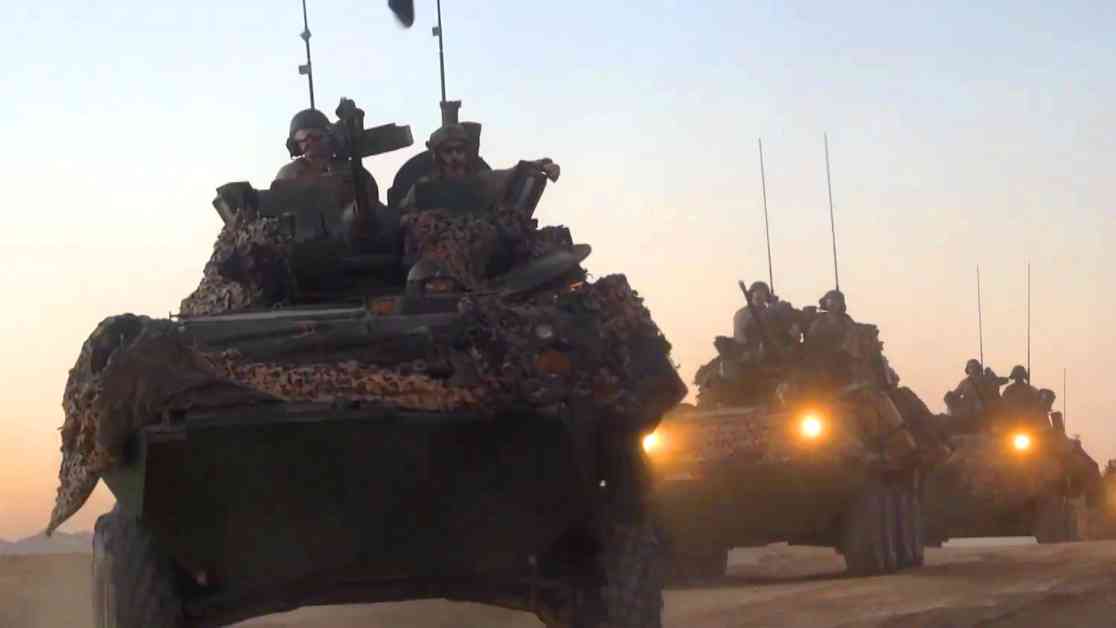Israel’s Escalation Strategy towards Hezbollah
In recent weeks, tensions between Israel and Hezbollah have escalated dramatically, with the conflict moving beyond a low-intensity war to a more intense and deadly phase. Israeli bombardment has intensified, leading to the displacement of thousands of Lebanese civilians and a tragic loss of life, with more than 600 people killed. As the situation on the Lebanon-Israel border deteriorates, Israel seems to be reverting to its wartime playbook, using a strategy of escalating to de-escalate tensions with Hezbollah.
This strategy, often employed by Israel in its conflicts with various adversaries, involves ramping up military actions and psychological pressure in order to intimidate and coerce the opposing side into accepting terms favorable to Israel. By creating a sense of fear and urgency, Israel aims to manufacture consent among its own population and the international community for a full-scale war on Lebanon.
Manufacturing Consent for War
Alongside the physical attacks on Lebanon, Israel also engages in a campaign of psychological warfare to further its agenda. This includes spreading fear and uncertainty among Lebanese civilians through air raids and the threat of a land invasion, as well as manipulating media narratives to shape public opinion in favor of military action. By portraying Hezbollah as a dangerous and imminent threat, Israel seeks to justify its aggressive actions and garner support for its war efforts.
Experts and analysts, such as Habib Battah, Ori Goldberg, Zahera Harb, and Assal Rad, have highlighted the dangerous implications of Israel’s escalating tactics and the urgent need for de-escalation to prevent further loss of life and destabilization of the region. The international community must closely monitor the situation and hold both Israel and Hezbollah accountable for their actions to prevent a full-blown conflict with devastating consequences.
The Role of Hasbara in Israeli Propaganda
A key component of Israel’s strategy to manufacture consent for war is the use of hasbara, a form of propaganda aimed at explaining and persuading audiences to support Israeli policies and actions. Hasbara encompasses a range of tactics, from media-trained government spokespersons delivering carefully crafted messages on television to social media campaigns promoting the Israeli military as both moral and trendy.
Online Zionist influencers, such as Hen Mazzig, have played a significant role in disseminating pro-Israel narratives and shaping public opinion in favor of the Israeli government’s agenda. However, the recent escalation of violence and human rights abuses in Gaza have posed challenges for these hasbarists, forcing them to defend increasingly indefensible actions and policies.
In response to these challenges, voices like Saree Makdisi, Tamara Nassar, and Matt Lieb have emerged to counter the pro-Israel propaganda machine and provide alternative perspectives on the ongoing conflict. Their efforts to expose the truth behind Israel’s actions and highlight the suffering of Palestinian civilians are crucial in challenging the dominant narratives perpetuated by Israeli propaganda.
As the situation between Israel and Hezbollah continues to escalate, it is imperative for the international community to pressure both parties to engage in meaningful dialogue and seek peaceful resolutions to their conflicts. The cycle of violence and destruction must be broken, and a sustainable peace must be pursued to ensure the safety and well-being of all people in the region.



























